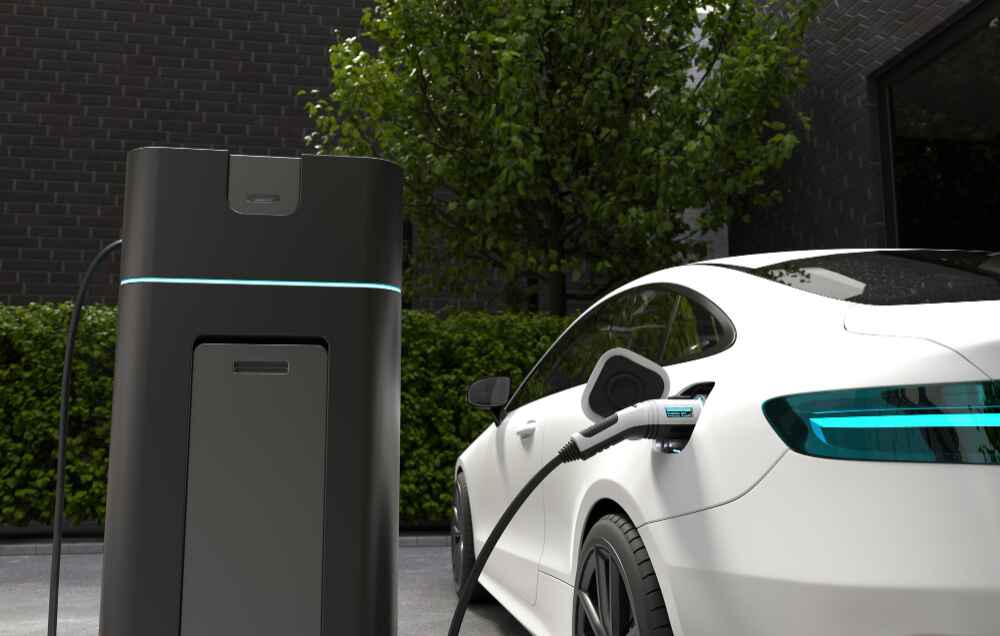


India electric vehicle market size was valued at USD 2,360.97 Million in 2024 & is expected to reach USD 1,64,420.39 Million by 2033 at a CAGR of 57.23%.
India Electric Vehicle Market 2025-2033
According to IMARC Group’s report titled “India Electric Vehicle Market Size, Share, Trends and Forecast by Vehicle Type, Price Category, Propulsion Type, and Region, 2025-2033“, The report offers a comprehensive analysis of the industry, including market share, growth, trends, and regional insights.
How Big is the India Electric Vehicle Industry ?
The India electric vehicle market size was valued at USD 2,360.97 Million in 2024 and is expected to reach USD 1,64,420.39 Million by 2033, exhibiting a CAGR of 57.23% during 2025-2033.
India Electric Vehicle Market Trends:
The India Electric Vehicle (EV) market is undergoing a significant transformation, driven by a combination of technological advancements, policy initiatives, and evolving consumer behavior. One of the most prominent trends is the rapid adoption of electric two-wheelers and three-wheelers, which have become the backbone of the EV ecosystem due to their affordability, ease of use, and suitability for India’s dense urban landscapes. Moreover, the government’s proactive measures, such as the Faster Adoption and Manufacturing of Hybrid and Electric Vehicles (FAME) scheme, subsidies, and tax exemptions, have played a pivotal role in accelerating EV adoption across the country.
In addition, battery-swapping technology is emerging as a game-changer, addressing range anxiety and reducing the upfront costs associated with EV ownership. This innovation is particularly impactful for fleet operators and shared mobility services, where downtime for charging can be a significant hurdle. Furthermore, the localization of battery manufacturing and EV components is gaining momentum, driven by collaborations between automakers, battery producers, and technology firms. This trend is expected to enhance supply chain efficiency, reduce costs, and make EVs more accessible to a broader audience. Basically, the integration of smart charging infrastructure and renewable energy sources is reshaping the EV landscape, making it more sustainable and aligned with India’s clean energy goals.
Another notable trend is the rise of connected and autonomous EV technologies, with startups and established players introducing advanced features like AI-driven diagnostics, predictive maintenance, and real-time data analytics. These innovations are not only improving the user experience but also paving the way for smarter, more efficient transportation systems. Additionally, the growing emphasis on fleet electrification, particularly in logistics and public transportation, is creating new opportunities for EV adoption. Overall, these trends highlight a dynamic and rapidly evolving market that is poised for substantial growth in the coming years.
Request for a sample copy of this report: https://www.imarcgroup.com/india-electric-vehicle-market/requestsample
India Electric Vehicle Market Scope and Growth Analysis:
The scope and growth analysis of the India Electric Vehicle market reveal a landscape brimming with potential, shaped by favorable economic, environmental, and regulatory factors. The market scope spans multiple segments, including passenger vehicles, commercial vehicles, two-wheelers, and three-wheelers, each experiencing increasing demand due to rising fuel costs, environmental concerns, and government incentives. Moreover, India’s commitment to reducing carbon emissions and achieving energy independence aligns with global climate goals, further expanding the market’s potential. In addition, the entry of global EV manufacturers and significant investments in local production facilities are expected to boost manufacturing capacity and create a competitive ecosystem.
Furthermore, the development of charging infrastructure, supported by public-private partnerships, is addressing one of the key barriers to EV adoption, thereby enhancing market growth. Basically, consumer awareness about the long-term cost benefits and environmental advantages of EVs is driving demand across urban and rural areas, making EVs a viable alternative to traditional internal combustion engine vehicles. Additionally, the integration of EVs into shared mobility platforms, logistics fleets, and last-mile delivery services is opening new avenues for market expansion. The rise of subscription-based models and EV leasing options is also making EVs more accessible to a wider audience. Moreover, advancements in battery technology, such as solid-state batteries and improved energy density, are expected to further enhance the performance and affordability of EVs, driving their adoption.
The growing emphasis on circular economy practices, including battery recycling and reuse, is also contributing to the sustainability of the EV ecosystem. Overall, the India EV market is set to experience robust growth, supported by technological innovation, supportive policy frameworks, and a collective shift towards sustainable transportation solutions. This growth trajectory underscores the immense potential of the EV market to transform India’s transportation landscape and contribute to a greener, more sustainable future.
Competitor Landscape:
India Electric Vehicle Industry Segmentation:
The report has segmented the market into the following categories:
Analysis by Vehicle Type:
Analysis by Price Category:
Analysis by Propulsion Type:
Regional Analysis:
Other key areas covered in the report:
Ask an analyst: https://www.imarcgroup.com/request?type=report&id=5074&flag=C
Note: If you need specific information that is not currently within the scope of the report, we can provide it to you as a part of the customization.
About Us:
IMARC Group is a global management consulting firm that helps the world’s most ambitious changemakers to create a lasting impact. The company provide a comprehensive suite of market entry and expansion services.
IMARC offerings include thorough market assessment, feasibility studies, company incorporation assistance, factory setup support, regulatory approvals and licensing navigation, branding, marketing and sales strategies, competitive landscape and benchmarking analyses, pricing and cost research, and procurement research.
Contact Us:
IMARC Group
134 N 4th St. Brooklyn, NY 11249, USA
Email: [email protected]
Tel No:(D) +91 120 433 0800
United States: +1-201971-6302
